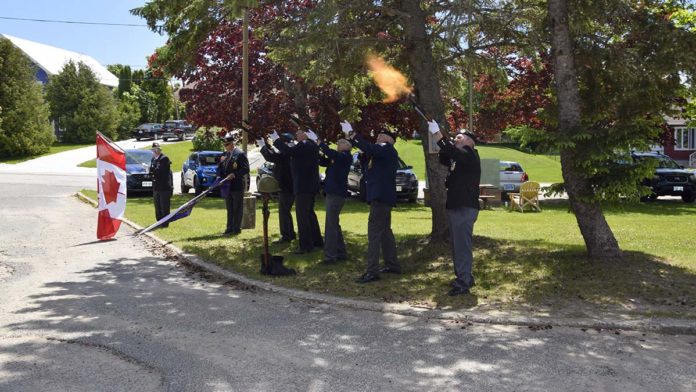To the Expositor:
I saw a meme recently that caused me to think of the people that lived through the Great Depression. The pictures, the movies, the books can give an impression of a rustic, unwashed folk helpless before the storm of an economic paroxysm. But were they? Let’s take a moment to examine this.
The seminal moment of the depression is often attributed to the stock market crash of 1929 and further negative development into the 1930s. Arguably, it started much earlier in the 1920s when there was a sharp decline in the price of agricultural goods, when demand from Europe for North American farm products dried up after the ending of WWI. This caused great hardship and many farms were abandoned.
However, despite this, a significant portion of our population remained agrarian and while times were most certainly harsher, these people had access to and knew how to make food.
Cities were much smaller then and were surrounded by towns, villages and farms, all of which formed a strong symbiotic network. You could get fresh milk delivered daily in the middle of a city and down on the farm, a doctor could show up to mend a broken arm after Billy fell out of a tree.
Manufacturing was everywhere. From socks to cars, almost everything was made relatively locally. People not only possessed the knowledge to make things but also how to fix things. Grow a garden. Hunt. Preserve, can and store food for the winter. Sew and mend clothing. Pitch a tent, catch a fish, start a fire and cook it for yourself. If you didn’t know any of this, you either lived in very rarified circumstances or were considered kind of useless.
Hurt feelings? So what. Got hurt playing baseball? Walk it off. People did care and cared deeply but something had to be pretty serious before it warranted attention.
Money could be a scarce resource but whatever you had retained great purchasing power. “Sound as a dollar” was a general expression of strength and integrity. Also, while prominent, only a small portion of the economy was involved in the financial trade.
Social networking was real and personal. Family hadn’t all moved away to pursue their dream of teaching Yoga in Tahiti. There were clubs, dance halls and card games. Strength of community was pursued and, by many, seen as a duty.
The depression wasn’t bad for everybody. Quite a few businesses and people thrived. There are examples of some who not only didn’t know there was a depression, they didn’t even know what a depression was. In addition, not everyone was a paragon of respectability. Society back then certainly had its share of knaves, scallywags and hopeless sods.
So, Douglas, you erudite and dashing fellow, I hear you say. What is it you are trying to tell us?*
It is this: I find it notable that a people who had recently endured a shattering industrialized war; that were sophisticated in their own way; that in aggregate, were tough, resilient and self reliant experienced an economic event that left a profound psychic scar that lasted generations.
Heads up, boys and girls!
Douglas Miller
Sudbury
*An expression happily borrowed from ‘The Critical Drinker.’




